
Who We Are
University of Thessaly (Uth, Coordinating Institute)
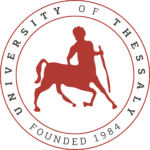
The University of Thessaly (http://www.uth.gr/en/index.php), comprised of 37 Departments and 8 Schools, is a Public University with its own identity and with a prominent position in the Greek national research and educational system. It provides undergraduate and postgraduate studies as well as extra-curricular modules in specific research and business fields, for over 43000 students. The main mission of the University of Thessaly is the promotion of scientific knowledge through research and the contribution to the cultural and economic development of the local community and the Greek society. It is known for its excellent research performance and outstanding scientific achievements, and it is in accordance with the international standards. The excellent equipped Laboratories of the various Departments and Research Units have a number of well-trained researchers to support them. The Lab of Sociology of Education (http://socedu.ece.uth.gr/index.php/en/) is located in the main campus of the University of Thessaly in Volos. The Lab conducts interdisciplinary research on education, educational commons, childhood, and youth in contemporary society. Although its focus is mainly sociological, researchers from other disciplines in the social sciences or the humanities (education, politics, social anthropology, psychology, or economics) are welcome to participate. The purpose is to bring together members of the Faculty interested and engaged in theoretically significant social research, which is empirically grounded. The common ground is the provision of an integrated account of the social relations of inequality and the processes by which inequality is transmitted and reproduced. This way the main aim of this lab is to promote theoretical understanding and empirical knowledge about childhood, youth, commons, tackling social inequalities via education and enabling active social inclusion. The Lab aims to fullfil the research and educative needs of students and teachers via specifically structured programs of research, lifelong learning and knowledge dissemination at the public at large. The Laboratory is digitally equipped, and available to the users for elaborating data.
Aristotle University of Thessaloniki (AUTh)
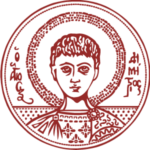
Aristotle University of Thessaloniki is one of the largest academic institutions in Greece and the Balkans. Aristotle University of Thessaloniki (AUTh) is a state institution established in 1925. Its structure, its range of activities and its size make it the largest and most complex institution of higher education in the country. More than 95,000 students study in the University’s 42 schools and the teaching and research staff number is approximately 3,000. AUTh has decided to run lifelong learning programmes, aiming to meet the increasing needs and demands of the Greek society for instruction, training, and specialization. The Committee considers that the operation of self-funded Lifelong Learning programmes will contribute significantly to a decrease in social exclusion with regards to education, as well as contribute to the modernization of the Greek educational system and to the improvement of the quality of education. The Committee also maintains that Lifelong Learning programmes have to operate within a framework that will guarantee high-quality studies, their compatibility with the role assigned to public universities, the efficiency, credibility and validity of the content of offered educational services, as well as ensure the recognition of the qualifications obtained, and transparency in fund management. The School of Political Sciences is committed to providing comprehensive, high-quality education in political science. Its programmes are designed to introduce the discipline from a broad perspective and expose students to cutting edge research in political science. Students are provided with advanced knowledge in the study of political phenomena: political institutions, processes and rivalry. The School provides young scholars with the theoretical and empirical tools necessary for the analysis of the constitution of and relationship between collective and individual identities within an organized society.
Universidade NOVA de Lisboa (UNL)

Universidade NOVA de Lisboa was founded on the 11th of August 1973. Integrated within a framework of expansion and diversification of higher education, the University adopted a new model within the Portuguese system that stressed interdisciplinary approaches, technological developments while, at the same time, safeguarding offerings in traditional academic domains including medicine, sciences and humanities – 28 Bachelor; 12 Integrated Masters; 105 Masters and 82 Doctorate. The founding of NOVA was a response to an ever-increasing demand for higher education in Portugal, in general, and in the city of Lisbon, in particular. Since its inception, NOVA has aimed to innovate higher education in Portugal and to contribute to the social and economic development of the country. CICS. NOVA Is a research unit (RU) created in 2015. Is mission is to undertake high quality and innovative interdisciplinary research for critical thinking in social sciences and policy-making. Accordingly, it is given equal importance to fundamental and applied research from an interdisciplinary perspective, taking into account the complexity of territorial systems and human behavior, the particularity of the functioning of institutions and the relationship with the surrounding spatial and social context. CICS. NOVA aims to consolidate and expand its recognition as an international reference in the scientific knowledge production, from an interdisciplinary approach to a more efficient response to complex challenges. The strong interdisciplinary strategy connects and enhances the knowledge in Sociology and Geography, as nuclear areas, and other Social Sciences, but also in Environmental and Natural Sciences, in its fundamental and applied components.
Malmö Universitet (MAU)
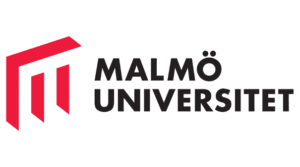 Malmö Universitet was founded in 1998 in Sweden’s third largest city of Malmö in the southern part of Sweden. It has five faculties, which between them span scientific fields within life sciences, humanities, health and technology. It offers a wide variety of education programmes and courses at undergraduate and postgraduate including PhD level. It has around 24,000 students and 2,000 employees. The Department of Childhood, Education and Society specialises in the field of “Childhood and Youth”. This is done through a wide range of disciplines such as pedagogy, sociology, psychology, language studies, historical perspectives and hands-on knowledge of drama, music and play. Our focus is on children’s everyday lives and on childhood and youth as a social and cultural phenomenon. In this way, we view children and adolescents as active participants and members of society rather than as outsiders or as emergent members of society. Our overall aim is to educate professional and reflective practitioners who can work in both pre-schools and primary schools and in the child and youth recreation sector. The research areas at the Department of Childhood, Education and Society covers” Childhood and adolescence in time and space”, “Childhood and adolescence in transition”, “The pre-school as a welfare institution”, “Institutionalisation”, “Professionalisation and Segregation”. Through its location in one of Sweden’s largest cities, marked by great variation in socio-economic conditions, educational levels, nationalities and languages, Malmö University is actively working with questions of how education may contribute to the reversal of inequalities. More specifically the University and the Department’s profiles match the tasks in the proposal in the following way:
Malmö Universitet was founded in 1998 in Sweden’s third largest city of Malmö in the southern part of Sweden. It has five faculties, which between them span scientific fields within life sciences, humanities, health and technology. It offers a wide variety of education programmes and courses at undergraduate and postgraduate including PhD level. It has around 24,000 students and 2,000 employees. The Department of Childhood, Education and Society specialises in the field of “Childhood and Youth”. This is done through a wide range of disciplines such as pedagogy, sociology, psychology, language studies, historical perspectives and hands-on knowledge of drama, music and play. Our focus is on children’s everyday lives and on childhood and youth as a social and cultural phenomenon. In this way, we view children and adolescents as active participants and members of society rather than as outsiders or as emergent members of society. Our overall aim is to educate professional and reflective practitioners who can work in both pre-schools and primary schools and in the child and youth recreation sector. The research areas at the Department of Childhood, Education and Society covers” Childhood and adolescence in time and space”, “Childhood and adolescence in transition”, “The pre-school as a welfare institution”, “Institutionalisation”, “Professionalisation and Segregation”. Through its location in one of Sweden’s largest cities, marked by great variation in socio-economic conditions, educational levels, nationalities and languages, Malmö University is actively working with questions of how education may contribute to the reversal of inequalities. More specifically the University and the Department’s profiles match the tasks in the proposal in the following way:
– Multidisciplinary experiences and knowledge in research, higher education and collaboration contribute to the overall project-process.
– Focus in research, higher education and collaboration on children’s active and participation in society contributes to the project’s focus on children as “commoners” and “educational commons”.
– Multicultural experiences and knowledge in research, higher education and collaboration contribute to the proposed project’s focus on reversing inequalities pertaining to categorizations of race, ethnicity, class, gender and/or disabilities.
University of Cadiz (UCA)
 The University of Cadiz was founded in 1979 and currently hosts more than 1,100 researchers and over 20,000 students per year, offering more than 100 degrees, ranging from graduate to official master’s degrees in all fields of learning. The research and innovation activities are one of the pillars of the UCA. There are 169 research teams divided into 9 main areas. UCA leads the “CAMPUS DE EXCELENCIA INTERNACIONAL DEL MAR” (CEIMAR), a campus whose mission is to become an international reference in teaching and research in marine themes including the Science, Engineering and Humanities (a strategic alliance of universities, research centres, science and technology parks and innovative companies of the South of Spain, Portugal and the North of Morocco). Moreover, the UCA has seven research institutes. The UCA plays a prominent role in 5 public-private European Partnerships underlining its main role in the Blue Growth initiative.The faculties involved in the project are the Faculty of Labour Relations, Faculty of Social and Communication Sciences and Faculty of Education. The Vice-Rectorate for Science and Technology Policy involves a Technology Transfer Office (OTRI) and a European project (OPE) office comprising highly specialized technicians with the main goal of fostering economic development and promoting employment creation. It has an extensive background establishing relations with relevant companies and clusters, technology centres, etc. OTRI main activities include managing, disseminating and transferring the University’s research results, including support to the creation of spin-off companies (technology- and humanities-based companies) and fostering the protection of research findings through patent licensing and other forms of protection of industrial and intellectual property.
The University of Cadiz was founded in 1979 and currently hosts more than 1,100 researchers and over 20,000 students per year, offering more than 100 degrees, ranging from graduate to official master’s degrees in all fields of learning. The research and innovation activities are one of the pillars of the UCA. There are 169 research teams divided into 9 main areas. UCA leads the “CAMPUS DE EXCELENCIA INTERNACIONAL DEL MAR” (CEIMAR), a campus whose mission is to become an international reference in teaching and research in marine themes including the Science, Engineering and Humanities (a strategic alliance of universities, research centres, science and technology parks and innovative companies of the South of Spain, Portugal and the North of Morocco). Moreover, the UCA has seven research institutes. The UCA plays a prominent role in 5 public-private European Partnerships underlining its main role in the Blue Growth initiative.The faculties involved in the project are the Faculty of Labour Relations, Faculty of Social and Communication Sciences and Faculty of Education. The Vice-Rectorate for Science and Technology Policy involves a Technology Transfer Office (OTRI) and a European project (OPE) office comprising highly specialized technicians with the main goal of fostering economic development and promoting employment creation. It has an extensive background establishing relations with relevant companies and clusters, technology centres, etc. OTRI main activities include managing, disseminating and transferring the University’s research results, including support to the creation of spin-off companies (technology- and humanities-based companies) and fostering the protection of research findings through patent licensing and other forms of protection of industrial and intellectual property.
Osnabrück University (UOS)
 Founded in 1974, Osnabrück University (UOS) is a young, vibrant university that is renowned for its research and teaching in the areas of social sciences, humanities, cognitive and molecular life sciences as well as computer science and mathematics. The modular and structured degree programmes of UOS feature the highest standards of quality, providing ideal conditions for about 14.000 students and Ph.D. students to learn and conduct research. UOS has a high experience in hosting postgraduate programmes with currently eight research training groups (of which two are funded by the DFG matching highest national scientific standards). UOS has implemented various measures/instruments for quality assurance in the scientific qualification phases (e.g., quality standards for doctoral studies at the UOS; individual development plan for each Ph.D.). The Ph.D. & Postdoc Career Center supports doctoral candidates, postdocs and junior professors in their scientific work and fosters their interdisciplinary qualification. UOS fulfils highest standards concerning equal opportunities (participation in the national professorship funding-program for female academics as well as ratio of over 28% female professors). Building on a long tradition of educational sciences since its founding years, Osnabrück University is renowned for its commitment as an institution leading students to high quality degrees for teachers on nearly all educational levels. The latest cornerstone of this profile element is the “Research Center for Early Childhood Development and Education Research”. This strand of research is established since 2007 through the close cooperation of Osnabrück University and the Lower Saxony Institute for Early Childhood Education and Development.
Founded in 1974, Osnabrück University (UOS) is a young, vibrant university that is renowned for its research and teaching in the areas of social sciences, humanities, cognitive and molecular life sciences as well as computer science and mathematics. The modular and structured degree programmes of UOS feature the highest standards of quality, providing ideal conditions for about 14.000 students and Ph.D. students to learn and conduct research. UOS has a high experience in hosting postgraduate programmes with currently eight research training groups (of which two are funded by the DFG matching highest national scientific standards). UOS has implemented various measures/instruments for quality assurance in the scientific qualification phases (e.g., quality standards for doctoral studies at the UOS; individual development plan for each Ph.D.). The Ph.D. & Postdoc Career Center supports doctoral candidates, postdocs and junior professors in their scientific work and fosters their interdisciplinary qualification. UOS fulfils highest standards concerning equal opportunities (participation in the national professorship funding-program for female academics as well as ratio of over 28% female professors). Building on a long tradition of educational sciences since its founding years, Osnabrück University is renowned for its commitment as an institution leading students to high quality degrees for teachers on nearly all educational levels. The latest cornerstone of this profile element is the “Research Center for Early Childhood Development and Education Research”. This strand of research is established since 2007 through the close cooperation of Osnabrück University and the Lower Saxony Institute for Early Childhood Education and Development.
University of Pompeu Fabra (UPF)
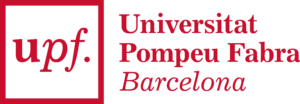 The Universitat Pompeu Fabra (UPF, www.upf.edu) was established in 1990 as a public university with a strong dedication to excellence in research and teaching. UPF takes part in this proposal through DCOM, its Department of Communication, sited at UPF’s Communication Campus, which was opened in 2009 and is located within the vibrant 22@ technological district of Barcelona, a strategic hub for knowledge-based institutions and companies linked to five industries: the media, ICTs, MedTech, energy and design. The Universitat Pompeu Fabra (UPF) has a long experience in EU research projects. It is the Spanish leading university in the most important rankings. It is placed in Barcelona, also a leading city in the history of social movements and cultural innovation. Research Group “Youth, Society and Communication” (JOVIScom) https://www.upf.edu/web/joviscom) belongs to the Communication Department of UPF. JOVIS is a consolidated research group with researchers from disciplines such as anthropology, sociology, communication, political science, geography and economy. Nowadays, it is formed by two dozen junior and senior researchers.The interdisciplinary nature of the group makes it possible to understand the different aspects of young people’s world today, taking into account that youth productions appear in all relational fields: at work, in play, in the street, on the Internet, with friends, teachers, parents, brothers and sisters, and bosses. This is why the group works from different scientific perspectives that allow us to understand the different dimensions that young people undoubtedly have of the 21st century, paying particular attention to gender issues, and without forgetting other ascribed identities, such as class, generation, ethnicity, religion, territorial or political identifications, often using both the physical and virtual space. During these last years, our team has established, through different collaborations, five big lines of interdisciplinary research that it is the basis of our work: 1) Theory, History and Epistemology; 2) Public policy, education and the work market; 3) Transnational Youth: identities, diaspora and youth agencies; 4) Youth cultures, political participation and social movements; and 5) Digital communication and media skills.
The Universitat Pompeu Fabra (UPF, www.upf.edu) was established in 1990 as a public university with a strong dedication to excellence in research and teaching. UPF takes part in this proposal through DCOM, its Department of Communication, sited at UPF’s Communication Campus, which was opened in 2009 and is located within the vibrant 22@ technological district of Barcelona, a strategic hub for knowledge-based institutions and companies linked to five industries: the media, ICTs, MedTech, energy and design. The Universitat Pompeu Fabra (UPF) has a long experience in EU research projects. It is the Spanish leading university in the most important rankings. It is placed in Barcelona, also a leading city in the history of social movements and cultural innovation. Research Group “Youth, Society and Communication” (JOVIScom) https://www.upf.edu/web/joviscom) belongs to the Communication Department of UPF. JOVIS is a consolidated research group with researchers from disciplines such as anthropology, sociology, communication, political science, geography and economy. Nowadays, it is formed by two dozen junior and senior researchers.The interdisciplinary nature of the group makes it possible to understand the different aspects of young people’s world today, taking into account that youth productions appear in all relational fields: at work, in play, in the street, on the Internet, with friends, teachers, parents, brothers and sisters, and bosses. This is why the group works from different scientific perspectives that allow us to understand the different dimensions that young people undoubtedly have of the 21st century, paying particular attention to gender issues, and without forgetting other ascribed identities, such as class, generation, ethnicity, religion, territorial or political identifications, often using both the physical and virtual space. During these last years, our team has established, through different collaborations, five big lines of interdisciplinary research that it is the basis of our work: 1) Theory, History and Epistemology; 2) Public policy, education and the work market; 3) Transnational Youth: identities, diaspora and youth agencies; 4) Youth cultures, political participation and social movements; and 5) Digital communication and media skills.
Ghent University (UGent)
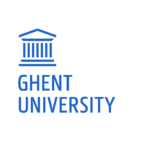 Ghent University was established in 1817 and has 11 faculties, which offer high quality and research-based educational programmes in almost each scientific discipline. Currently there are about 9 000 staff members working at Ghent University and over 44000 students. More than 10% of the student population is international. The university is very active on the international scene, scores high in the international rankings: n° 66 in the Shanghai ranking and n° 123 in the Times Higher Education World Universities Ranking, and has been at the forefront of the implementation of all European higher education funding programmes since the start of the Erasmus programme. Apart from educational projects, Ghent University is active in many research projects (FP7, now Horizon 2020), a number of collaborative development projects, financed by both national (VLIR: Flemish Interuniversity Council, DGDC, BTC) and international organisations (Unesco etc). For Ghent University internationalisation offers important opportunities to tackle the challenges it is confronted with, both internally and externally, and to optimise the quality of its education, research and services to society. Ghent University aims for a greater international visibility and competitiveness and for an impact on external policies (Flemish, Belgian and European) in the field of international cooperation.
Ghent University was established in 1817 and has 11 faculties, which offer high quality and research-based educational programmes in almost each scientific discipline. Currently there are about 9 000 staff members working at Ghent University and over 44000 students. More than 10% of the student population is international. The university is very active on the international scene, scores high in the international rankings: n° 66 in the Shanghai ranking and n° 123 in the Times Higher Education World Universities Ranking, and has been at the forefront of the implementation of all European higher education funding programmes since the start of the Erasmus programme. Apart from educational projects, Ghent University is active in many research projects (FP7, now Horizon 2020), a number of collaborative development projects, financed by both national (VLIR: Flemish Interuniversity Council, DGDC, BTC) and international organisations (Unesco etc). For Ghent University internationalisation offers important opportunities to tackle the challenges it is confronted with, both internally and externally, and to optimise the quality of its education, research and services to society. Ghent University aims for a greater international visibility and competitiveness and for an impact on external policies (Flemish, Belgian and European) in the field of international cooperation.
University of Minho (UMINHO)
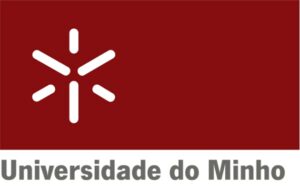 University of Minho (UMinho) is a Research University focusing on the regional, national and international socioeconomic environment, and invested in growing the Knowledge, RD&I chain, namely through intellectual property management, standing as one of the Portuguese (PT) HEIs with more registered patents. UMinho runs two of the largest ever Academia-Industry collaboration projects in PT jointly with BOSCH: Sensible Car and Easy Rider. Figures: 31 Research Units: 7 Excellent, 19 Very Good (FCT 2018 Evaluation); Active Research Projects: >600; Refereed papers in scientific journals and Citations rising: 3 researchers on WoS Highly Cited Researchers List; Postgraduate students/total student population near 40%; >200 PhDs awarded yearly; UMinho ranked 3rd among PT entities as to FP7 funding. In the H2020 framework, UMinho has 73 approved projects (17 coordinated in-house), and ranks 3rd among PT research organizations regarding EU contributions. UMinho researchers currently manage 7 ERC Grants (ADG, CoG, PoC and StG), and lead all Widening types of instruments: TEAMING, TWINNING, ERA-Chairs and previously REGPOT. UMinho is the only PT University in the Main Consortium of the Graphene Flagship FET project. Minho is the top PT HEI in the UI GREENMetric World University Ranking 2019, and also emerges as the best Portuguese, 3rd Iberian and 83rd institution in the world regarding fulfillment of the UN Sustainable Development Goals, according to the 1st edition of THE Impact Rankings.
University of Minho (UMinho) is a Research University focusing on the regional, national and international socioeconomic environment, and invested in growing the Knowledge, RD&I chain, namely through intellectual property management, standing as one of the Portuguese (PT) HEIs with more registered patents. UMinho runs two of the largest ever Academia-Industry collaboration projects in PT jointly with BOSCH: Sensible Car and Easy Rider. Figures: 31 Research Units: 7 Excellent, 19 Very Good (FCT 2018 Evaluation); Active Research Projects: >600; Refereed papers in scientific journals and Citations rising: 3 researchers on WoS Highly Cited Researchers List; Postgraduate students/total student population near 40%; >200 PhDs awarded yearly; UMinho ranked 3rd among PT entities as to FP7 funding. In the H2020 framework, UMinho has 73 approved projects (17 coordinated in-house), and ranks 3rd among PT research organizations regarding EU contributions. UMinho researchers currently manage 7 ERC Grants (ADG, CoG, PoC and StG), and lead all Widening types of instruments: TEAMING, TWINNING, ERA-Chairs and previously REGPOT. UMinho is the only PT University in the Main Consortium of the Graphene Flagship FET project. Minho is the top PT HEI in the UI GREENMetric World University Ranking 2019, and also emerges as the best Portuguese, 3rd Iberian and 83rd institution in the world regarding fulfillment of the UN Sustainable Development Goals, according to the 1st edition of THE Impact Rankings.
University of Palermo (UNIPA)
 University of Palermo (UNIPA) is a consolidated cultural, scientific and teaching presence in central-western Sicily. About 127 courses (first and second cycle) are yearly offered as well as 44 masters and specialization courses, plus 19 PhD courses (13 are international), often in cooperation with external institutions and companies. UNIPA is a galaxy with over 40.000 students, 1.500 faculty members and 1.600 administration staff, distributed in 5 Schools and 20 Departments. It is also present in Agrigento, Caltanissetta e Trapani. The Department of Cultures and Society is part of UNIPA. Its areas of research and teaching includes cultural heritage, social work, communication and digital media, local development and cultural tourism, migrations and intercultural dialogue, political science, cultural studies.
University of Palermo (UNIPA) is a consolidated cultural, scientific and teaching presence in central-western Sicily. About 127 courses (first and second cycle) are yearly offered as well as 44 masters and specialization courses, plus 19 PhD courses (13 are international), often in cooperation with external institutions and companies. UNIPA is a galaxy with over 40.000 students, 1.500 faculty members and 1.600 administration staff, distributed in 5 Schools and 20 Departments. It is also present in Agrigento, Caltanissetta e Trapani. The Department of Cultures and Society is part of UNIPA. Its areas of research and teaching includes cultural heritage, social work, communication and digital media, local development and cultural tourism, migrations and intercultural dialogue, political science, cultural studies.
Tallinn University of Technology (TALTECH)
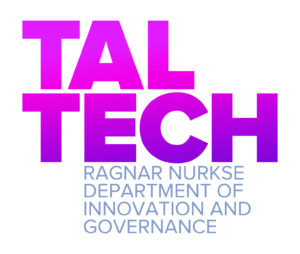 Tallinn University of Technology (Taltech) with its 12000 students is the only technological university in Estonia. Established in 1918, the university currently has 4 schools (faculties) and 2000 employees. In 2013, it was ranked the first among the Baltic universities, according to the QS World University Rankings. TalTech is a university, which by relying on academic competencies and professional management, responds actively to the needs of the rapidly developing society and is involved in tackling the challenges of the digital era. Ragnar Nurkse Department of Innovation and Governance (RND) is part of Taltech University. The RND has two main research fields: Public Administration (PA) and Management; and Innovation Policy and Technology Governance (including e-governance, commons and Peer to Peer research). RND’s “Cosmolocalism” project is an ERC grand with the aim to will advance our understanding of how to create a sustainable economy through the commons. Moreover, RND has an MA course on commons and Peer to Peer governance.
Tallinn University of Technology (Taltech) with its 12000 students is the only technological university in Estonia. Established in 1918, the university currently has 4 schools (faculties) and 2000 employees. In 2013, it was ranked the first among the Baltic universities, according to the QS World University Rankings. TalTech is a university, which by relying on academic competencies and professional management, responds actively to the needs of the rapidly developing society and is involved in tackling the challenges of the digital era. Ragnar Nurkse Department of Innovation and Governance (RND) is part of Taltech University. The RND has two main research fields: Public Administration (PA) and Management; and Innovation Policy and Technology Governance (including e-governance, commons and Peer to Peer research). RND’s “Cosmolocalism” project is an ERC grand with the aim to will advance our understanding of how to create a sustainable economy through the commons. Moreover, RND has an MA course on commons and Peer to Peer governance.
MOMUS-Metropolitan Organization of Museums of Visual Arts of Thessaloniki (MOMUS)
 The Metropolitan Organization of Museums of Visual Arts of Thessaloniki – MOMus was born from the merger of four Thessaloniki-based museums/art venues (the State Museum of Contemporary Art, the Macedonian Museum of Contemporary Art, the Thessaloniki Museum of Photography and the Contemporary Art Center of Thessaloniki) and the Athens-based Museum Alex Mylona. MOMus is a Legal Entity of Private Law based in Thessaloniki and is under the oversight of the Hellenic Ministry of Culture and Sports. The legal status, organizational goals, administration and structure of the institution, and all matters pertaining to its management and operation, are described in the law establishing MOMus (Law 4572/2018). The founding of MOMus followed a years-long period of concentrated effort, driven by the steadfast, shared ambition of creating synergies and setting common goals for the promotion of contemporary Greek culture at the local, national and international level. The goals of the Institution are the following:
The Metropolitan Organization of Museums of Visual Arts of Thessaloniki – MOMus was born from the merger of four Thessaloniki-based museums/art venues (the State Museum of Contemporary Art, the Macedonian Museum of Contemporary Art, the Thessaloniki Museum of Photography and the Contemporary Art Center of Thessaloniki) and the Athens-based Museum Alex Mylona. MOMus is a Legal Entity of Private Law based in Thessaloniki and is under the oversight of the Hellenic Ministry of Culture and Sports. The legal status, organizational goals, administration and structure of the institution, and all matters pertaining to its management and operation, are described in the law establishing MOMus (Law 4572/2018). The founding of MOMus followed a years-long period of concentrated effort, driven by the steadfast, shared ambition of creating synergies and setting common goals for the promotion of contemporary Greek culture at the local, national and international level. The goals of the Institution are the following:
· The dynamic development and promotion of visual arts, photography and industrial and architectural design.
· The dynamic promotion of art education.
· The dynamic development of historical and scientific studies and research.
· Providing support to experimental and alternative art initiatives.

